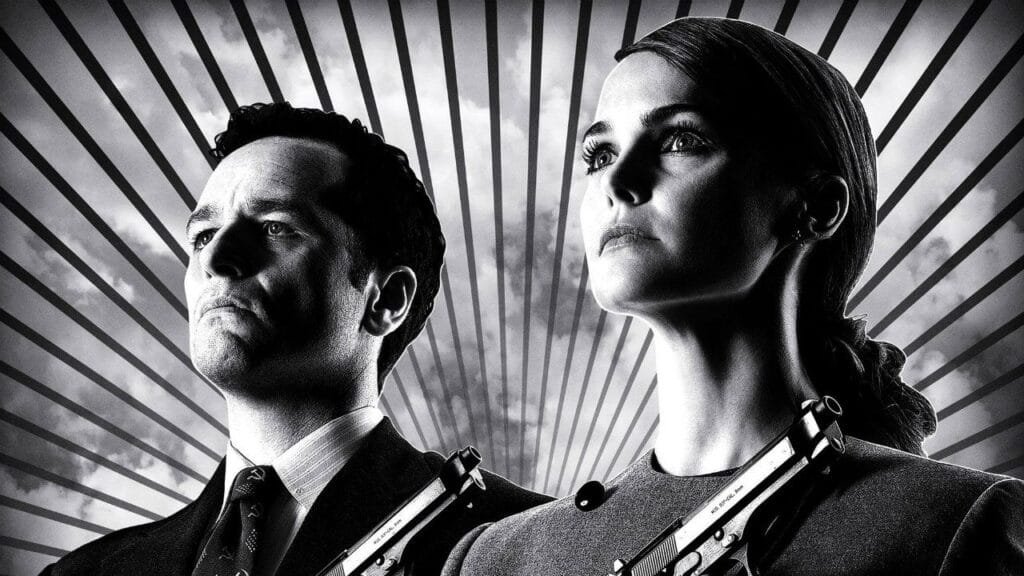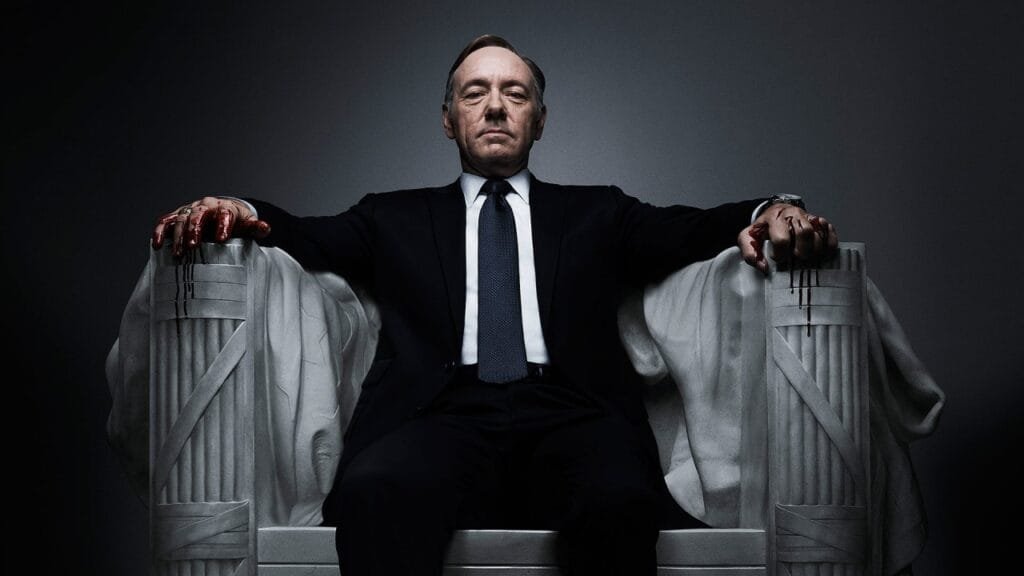Few genres in television captivate audiences like political thrillers. High-stakes power struggles, complex conspiracy theories, and suspenseful dramas reflecting real-world conflicts keep viewers glued to their screens while offering sharp social commentary that leaves a lasting impact.
These shows exploring the dark side of politics or the personal sacrifices of those involved delve deeply into the cost of ambition and the murky morality of leadership. In the process, they confront viewers with the complexities of power and those who shape it. From modern classics like “The Americans” to underappreciated gems like “The Night Manager,” these series redefine the genre’s boundaries by masterfully blending suspense, strategy, and storytelling.
Designated Survivor (2016)

In “Designated Survivor,” Kiefer Sutherland plays Tom Kirkman, a low-level cabinet member who unexpectedly becomes President of the United States following a massive attack on the Capitol Building. This impressive series created by Guggenheim offers a successful blend of action, suspense, and political drama.
The show progresses through a wide range from domestic terrorism and government conspiracy theories to internal political conflicts. As Kirkman tries to find his way in the ruthless world of politics, themes such as real-world problems and the weight of leadership under pressure are explored in depth.
Guggenheim’s contribution to the political thriller genre takes viewers on an immersive journey with realistic scenes and detailed portrayal of political chaos. By delicately addressing the challenges, internal and external threats, and personal and professional conflicts faced by a bureaucrat who ascends to the presidential seat, it offers both a current and timeless viewing experience.
The Diplomat (2023–)

Exploring the world of international diplomacy in depth, “The Diplomat” follows the journey of experienced diplomat Kate Wyler, played by Keri Russell from “The Americans,” who is unexpectedly appointed as the US Ambassador to the United Kingdom. While Wyler faces personal and professional challenges, her tense relationship with her husband Hal (Rufus Sewell), who is also a diplomat, takes center stage in the story.
Created by Debora Cahn, “The Diplomat” is a perfect choice for those interested in both personal drama and high-risk political intrigue. The show offers a realistic look at the nuanced relationships at its center—including a marriage as intense as the international crises developing around it—and the challenges of international diplomacy.
Set in an environment of power struggles within governmental diplomatic circles, hidden agendas, and global stability at risk, this political thriller keeps the stakes and drama high. The behind-the-scenes diplomatic maneuvers, the fragility of international relations, and a diplomat’s struggle to survive in this complex environment are felt throughout every scene. From England’s magnificent diplomatic settings to tense negotiations behind closed doors, “The Diplomat” fascinatingly reveals the unseen face of international relations.
Scandal (2012–2018)

“Scandal” follows former White House Communications Director Olivia Pope (Kerry Washington) as she navigates the world of crisis management in Washington D.C. As Olivia and her team, known as the “Gladiators,” handle these cases, they frequently find themselves entangled in a web of political intrigue, corruption, and personal drama.
Created by Shonda Rhimes, “Scandal” is known for its rapid plot developments and surprising endings. While encouraging viewers to constantly make predictions, the show explores themes of race, gender, and power dynamics. With high-risk dramas and complex plots involving election rigging, assassinations, and secret government organizations, the show enchants with its diverse cast, memorable characters, and compelling stories.
Not only entertaining, “Scandal” also paves the way for more diverse representation in popular culture (especially thanks to its strong, black female lead who succeeded in a major network series). Political games in the dark corridors of the White House and Washington, situations where ethical boundaries are pushed, and the reflection of power struggles on human relationships are skillfully portrayed in each episode of “Scandal.” By bringing fresh breath to the world of political thrillers with Olivia Pope’s sharp intelligence and solution-oriented approach, the show also questions different dimensions of the concept of power.
Paradise (2025–)

One of the most promising shows of recent times, “Paradise” is a captivating production that combines elements of science fiction, mystery, and suspense. Created by Dan Fogelman, the series stars Sterling K. Brown as a Secret Service agent tasked with uncovering the truth behind the murder of a former US President in a secure underground community.
In the world of political thrillers, “Paradise” holds a different place with its unusual setting, science fiction twist, and bold genre mixing. Through its speculative elements and unique perspective, the show adds a fresh viewpoint to the murder mystery genre while exploring themes of survival and control.
Add compelling performances and a fast-paced narrative, and it’s not surprising that many viewers continue to want more. “Paradise” pushes the boundaries of the genre by taking the traditional political thriller formula and placing it in a futuristic framework. In this isolated underground community, political power games and social control mechanisms become more intense and visible.
While the dystopian atmosphere created by the series mirrors today’s political realities, the psychological depths and moral dilemmas of the characters raise universal questions about the human condition. “Paradise” stands out not just as a murder investigation, but as a complex examination of human vulnerabilities and resistance in the face of power.
Bodyguard (2018)

With Richard Madden’s impressive lead performance, “Bodyguard” is an impactful political thriller that doesn’t shy away from depicting its hero’s struggle with PTSD. The story follows war veteran-turned-Special Protection Officer David Budd as he navigates the British political world while protecting ambitious and controversial Home Secretary Julia Montague (Keely Hawes).
Those who enjoy intense and suspenseful episodes, well-developed characters, and realistic portrayals of real-world issues such as terrorism and surveillance laws will likely not regret giving “Bodyguard” a chance. Skillfully written and elevated by a convincing central performance, the series weaves an intriguing web of conspiracies involving government figures and security services while offering sharp social commentary on privacy rights, the impact of war on veterans, and the ever-present threat of terrorism.
Created by Jed Mercurio, “Bodyguard” portrays the inner workings of the British political system and security services with striking realism. The moments when David Budd’s character is caught between his personal traumas and professional obligations add both psychological depth and reveal the ethical contradictions of the modern security state. Set in London’s iconic locations and covering a wide range from high-tension bomb disposal scenes to political intrigue-filled meetings, “Bodyguard” forces viewers to watch while holding their breath.
The Night Manager (2016)

Adapted from John le Carré’s novel, “The Night Manager” is a sleek and engrossing espionage thriller that blends stunning locations and cinematography with high-stakes intrigue. At its center is Jonathan Pine, played by Tom Hiddleston, a former British soldier now working as a hotel night manager. The series follows Pine’s dangerous journey into the world of international arms dealing when he is tasked with infiltrating the inner circle of ruthless arms dealer Richard Roper (Hugh Laurie).
Filled with engaging characters, “The Night Manager” develops through its atmospheric setting and a sophisticated plot filled with espionage tactics and double-crosses that increase tension as each episode passes. David Farr’s adaptation is a masterclass in creating suspenseful storytelling with intricate plotting, exploring the gray areas of espionage and morality. With outstanding central performances from its star-studded cast and a suspenseful narrative, “The Night Manager” is a must for anyone drawn to stories of power and corruption.
The series’ internationally ranging story extends from luxury hotels to desolate deserts, from the bright shores of the Mediterranean to dark arms warehouses. Le Carré’s sharp observations about the post-Cold War world come to life again in Farr’s adaptation as the dark side of modern arms trade and international diplomacy. Pine’s identity crisis and moral dilemmas while infiltrating Roper’s world dramatically reveal the psychological cost of espionage.
The Americans (2013–2018)

Another masterfully crafted espionage drama, Joseph Weisberg’s “The Americans” incorporates elements of political thriller into its narrative through a storyline involving international relations and conspiracies between the US and Soviet Union. Set during the Cold War, the series revolves around Elizabeth (Keri Russell) and Philip (Matthew Rhys), two Soviet KGB officers living as an American married couple in the Washington D.C. suburbs.
Set in the 1980s, “The Americans” is a story about deception, loyalty, and the personal cost of living a double life. Standing out for its portrayal of the tumultuous period, the series offers an impressive and thought-provoking viewing experience for fans of political thrillers. However, what truly sets it apart is not just the espionage and tension, but also the personal struggles of its characters that feel real and believable.
With rich storytelling, top-notch performances, and sharp historical accuracy, the series earned numerous nominations and awards that helped solidify its place as one of the best shows in the genre. “The Americans” is a multi-layered production that tells how the ideological conflict experienced in the depths of the Cold War shaped human lives. The dangerous operations Elizabeth and Philip conduct as KGB agents constantly conflict with their family lives.
The identity search of the couple’s children growing up in American society, the drama of parents caught between ideological loyalties and parental instincts, and the moral burden created by the fake friendships they establish with their neighbors and colleagues… “The Americans” is a drama that illuminates the darkest corners of the human soul beyond espionage thriller.
Homeland (2011–2020)

Alex Gansa and Howard Gordon’s show kept viewers on the edge of their seats for a decade, and it’s not difficult to understand why. The critically acclaimed thriller examines the world of international terrorism and US intelligence operations in depth. The series begins with Carrie Mathison (Claire Danes) suspecting that US Marine Sergeant Nicholas Brody (Damian Lewis) has been turned into a terrorist after eight years in captivity.
“Homeland” benefits from exceptional acting, particularly Danes’ powerful portrayal of Mathison and its ability to capture the zeitgeist of global politics. Skillfully exploring themes like loyalty, identity, and morality in the context of espionage, Gansa and Gordon’s series left a lasting impact on television, setting a high standard for political thrillers with its sharp writing and immersive atmosphere.
“Homeland” tells the complex and morally ambiguous nature of the intelligence world through its characters’ personal traumas and professional obligations. Carrie Mathison’s struggle with bipolar disorder, combined with her extraordinary analytical abilities and intuitive intelligence, adds a unique dimension to the series.
The inner workings of the CIA’s counter-terrorism operations, the complexity of Middle East policies, and the environments where national security decisions are made are addressed from different angles in each season of the series. “Homeland” is a bold and provocative production that constantly questions its viewers, taking them through a moral gray area where no character is entirely innocent or entirely guilty.
24 (2001–2010)

This must-see action-thriller tells the story of Counter-Terrorism Unit agent Jack Bauer (Kiefer Sutherland) racing against time to prevent an assassination attempt on presidential candidate David Palmer (Dennis Haysbert). As the seasons progress, Jack faces numerous terrorist threats, including nuclear attacks and biological warfare.
When it comes to essential political thrillers that revolutionized television, “24” is certainly at the top of the list. The groundbreaking series introduced a real-time format where each 24-episode season covers just one day, immersing viewers in its adrenaline-pumping world of counter-terrorism.
With perfect pacing and heart-pounding action sequences, the show set a new standard for the genre: it not only refined how political thrillers could be structured but also raised the bar for suspenseful stories on TV. Created by Robert Cochran and Joel Surnow, “24” revolutionized television history with its real-time format. While the Jack Bauer character represented the “at any cost” approach in the context of counter-terrorism, the series masterfully brought post-9/11 America’s fears and concerns to the screen.
The digital clock advancing in each episode created a constant sense of tension and urgency in the viewer, while the method of showing different characters’ actions simultaneously with the split-screen technique added a new dimension to television narrative. With its broad geography extending from Los Angeles to Washington, from Africa to the Middle East, “24” reflected the complex nature of global terror networks and the fight against them with impressive realism.
House of Cards (2013–2018)

Despite controversies regarding its handling of real-world issues and the impact of Kevin Spacey’s allegations, which ultimately led to his firing, “House of Cards” remains a defining series in the political thriller genre, known for its ruthless portrayal of power, manipulation, and the dark side of politics. The series follows the rise of ruthless and cunning politician Frank Underwood, alongside his equally ambitious wife Claire, played by Robin Wright.
“House of Cards” is as much a political thriller as it is a social commentary – it offers a sharp critique of corruption, power dynamics, and the influence of money and lobbying in politics while delivering an interesting perspective on the inner workings of government. Those interested in the masterful suspense found in political thrillers know that Beau Willimon’s show is the blueprint for the genre, with undeniable influence on television.
“House of Cards” reveals the darkest and ugliest face of American politics without filters. Frank Underwood’s fourth-wall-breaking direct addresses to the viewer offer a unique look into the character’s Machiavellian worldview and thought processes. Set in the corridors of power in Washington D.C., the complex network of relationships between politicians, lobbyists, journalists, and activists is depicted with the naked reality of power games.
The cinematographic quality of the series, the cold and calculated visual language established in the first episodes directed by David Fincher, perfectly complements the atmosphere of the story. “House of Cards” is not just a political thriller, but also a dark meditation on power and morality.
